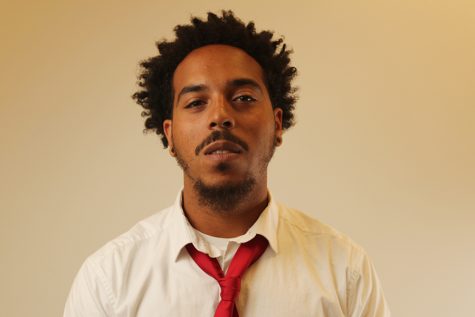United Faculty sues district over unfair labor practice
Feb 14, 2017
The United Faculty filed an “Unfair Labor Practice” claim in November 2016 with the Public Employee Relations Board against the Contra Costa Community College District after years of failed attempts to modify how investigations into faculty misconduct allegations are conducted.
According to the UF’s newsletter, “Table Talk,” faculty members who have been involved in misconduct investigations through the years often complain of feeling disrespected, frustrated and scared after meeting with district lawyers.
UF Executive Director Jeffery Michels said alleged faculty members and their union representatives are oblivious of what to expect until they’re met by an abundance of accusations and incriminating questions.
Michels, the lead UF negotiator, said student confidentiality and attorney-client privilege clauses are the usual ostensible reason district lawyers claim for leaving the alleged and their union representatives in the dark during investigations.
He said he strongly believes student confidentiality should be treated with the utmost importance, but it’s not fair that union representatives are unable to see the complaints filed against their members to appropriately advise and represent them during allegation meetings.
There is no writing in the board policies that explicitly grants professors the right to access case files, even with the names and personal information of the accusers blacked out.
According to the district’s Human Resources Procedure 2070.01 “Academic Employee Discipline/Dismissal,” a tenured or part-time professor can only be dismissed or suspended if there is extensive documentation and evaluation of the misconduct or unsatisfactory performance.
Disciplinary actions for classified managers, supervisors and classified staff, represented by Local One, has a slightly different procedure.
According to Board Policy 2040, the district’s chancellor, Dr. Fred Wood, must provide the accused manager, supervisor or classified staff member with a written notice that describes specific acts and omissions on which the proposed disciplinary action is based, as well as the disciplinary action recommended.
All employees, however, have the right to demand a preliminary hearing before district Chief Human Resources Officer Eugene Huff, on the alleged charges leading up to the evidentiary hearing with the Governing Board.
Michels said that UF representatives, or the accused professor, are never granted access to the full investigation report during or after the investigation concludes.
“Such practices leave the union and its members at a disadvantage,” he said.
During a California Community College Independents conference, UF executive boards members met with people in faculty unions who have established the right to see complaints made against them using precedents set by past judge rulings.
Michels said when this information was brought to the district’s attention in November 2016, their lawyers refuted the cases’ precedents and claimed the information the UF gathered was wrong.
The UF lawyers disagreed with the district lawyer’s denial and filed an unfair labor practice claim last November to argue the dispute before a judge — a measure that Michels said the UF has not resorted to in almost 11 years.
UF President Donna Wapner laid out the dispute in a letter she wrote for the Dec. 12, 2016 issue of “Table Talk.”
“While the district experimented a bit recently with using different investigators,” Wapner said, “we still lack protocols that should be in place to ensure that investigations don’t turn into witch hunts and that faculty being questioned are treated as we would all want to be treated by our employers.”
Wapner said misconduct investigations often extend from the original allegation and lead to dozen-, even hundred-page disciplinary documents with inaccuracies and falsehoods.
She said the lawsuit aims to end the district’s reprimand of “falsely-accused” faculty, while still protecting the students’ right to privacy.
“We’re not asking for investigations to be less vigorous,” Michels said. “But we are asking that teachers be treated more respectfully during these investigations.”
Michels, who has been working closely with district officials for the past 11 years, said the claim doesn’t indicate a breakdown in the relationship between teachers and the district.
But he hopes it will finally address enduring disagreements regarding faculty misconduct investigations.


